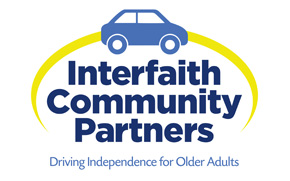By Mary Carol Tlusty, Assistant Vice President – Branch Manager, FNBC Bank & Trust
 At FNBC Bank & Trust, we see clients of all ages dealing with financial scams, but senior citizens are frequent targets of financial fraud. According to the National Council on Aging, in 2021, there were 92,371 older victims of fraud resulting in $1.7 billion in losses. Here are some tips to protect yourself from financial scams.
At FNBC Bank & Trust, we see clients of all ages dealing with financial scams, but senior citizens are frequent targets of financial fraud. According to the National Council on Aging, in 2021, there were 92,371 older victims of fraud resulting in $1.7 billion in losses. Here are some tips to protect yourself from financial scams.
Be aware of common financial scams:
- Government impersonation scams: Scammers pose as government officials, such as the IRS or Social Security Administration, and demand money or personal information.
- Sweepstakes and lottery scams: Scammers may contact you and tell you that you have won a prize, but you need to pay a fee to claim it.
- Romance scams: Scammers may create fake online profiles and pose as someone they are not in order to build a relationship with you. Once they have gained your trust, they may ask for money or personal information.
- Robocall scams: Scammers may use robocalls to make it seem like they are from a legitimate company, such as a bank or credit card company. They may then ask for personal information or your credit card number.
- Push Payment Fraud: A scammer will impersonate a company or an individual you know to trick you into making payments to them. We see this often with Grandparent Scams where a caller impersonates a grandchild and says they are in a crisis situation and need money to get home or get out of a dangerous situation.
- Tech support scams: Scammers may call you and claim that there is a problem with your computer. They will then offer to help you fix the problem, but they will actually install malware on your computer that allows them to control your computer and gain access to your accounts.
Be prepared to protect yourself:
- Pay attention to your bank accounts. Check your bank and credit card statements regularly. Notify your bank of any unusual or unauthorized activity.
- Be skeptical of any unsolicited calls or emails. Banks, credit card companies, and government agencies will not contact you and ask you for your personal information. If anyone pressures you to provide a social security number, account number, or a password, it’s probably a scam.
- Be careful about the information you share online. Don’t share your personal information on social media or with people you meet online.
- Don’t send money to someone you have only met online. If someone you meet online asks you for money, it is probably a scam, especially if they pressure you or create a sense of urgency.
- Never pay upfront fees to claim a prize. If you are told that you have won a prize, but you need to pay a fee to claim it, it is a scam.
- Talk to your family and friends about financial scams. The more people who are aware of these scams, the less likely they are to fall victim to them.
If you notice unusual or unauthorized activity on your bank accounts, contact your bank immediately. In addition, if you think you have been the victim of a financial scam, you should report it to the Federal Trade Commission (FTC). You can file a complaint online at ftc.gov or by calling 1-877-FTC-HELP.
FNBC Bank & Trust is a locally owned community bank with locations in LaGrange, Western Springs, and West Chicago. Contact us at 708.482.7700 or visit our website at www.fnbcbt.com.
Member FDIC | Equal Housing Lender | NMLS #512329

